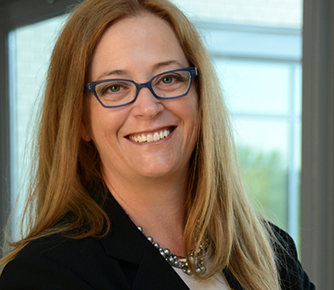Earlier this month, more than 250 leaders came together to build on the promise of managed care at the 2020 Medicaid Health Plans of America (MHPA) virtual conference. Every year, this conference brings the managed care industry together from both national and regional health plans to explore innovative policy solutions, always with the goal to enhance care delivery, reduce care costs and provide quality care for all individuals enrolled in Medicaid.
I have served on the MHPA Board since 2015, and in that time our focus on health care access and quality has never changed. During the four days we gathered, speakers discussed strategies regarding integration of physical and behavioral health care, racial inequities and disparities, the needs of our complex members, lessons learned from COVID-19 and social determinants of health (SDOH) — and how managed care is working to advance these strategies.
If you didn’t have the chance to attend, I have included recaps of two keynote addresses in this blog along with information about a recent campaign launched by MHPA focused on highlighting the impact of managed care.
Exploring innovative programs in Maryland
Larry Hogan, Governor of Maryland and first keynote speaker for the conference, is at the forefront of efforts to ensure that underserved individuals have access to health care. As someone who has faced a rare form of lymphoma, Hogan has personally experienced the critical need for accessible health care. With his support, the Maryland administration invested nearly $56 billion for Maryland’s Medicaid program, which provides coverage to nearly 1.4 million residents today.
Hogan's administration has also worked with federal and state partners to design and execute a first of its kind total cost of care Medicaid model contract. Based on recent data, this approach has reduced unnecessary costs, increased accountability, encouraged innovative care and expanded access.
As Governor of Maryland, as the past chair of the nation’s governors, and as a former patient who dealt with a life-threatening illness, I’m deeply aware of just how important access to quality health care is, and I’ve come to truly appreciate the critically important and life-saving work that all of you do. — Larry Hogan
At the onset of COVID-19, Maryland and every other state in the nation was left to acquire the necessary testing components needed to care for their populations. To address this critical need, Governor Hogan led the development of a multi-state testing initiative to procure millions of rapid tests to address the gap in available tests needed. At the beginning of the pandemic, the state of Maryland had only enough resources to conduct 50 COVID-19 tests a day. Today, the state is completing 30,000 tests a day and has tested nearly 1 million individuals
Far too often, health care has become a partisan issue. And many times, the politics seems to get in the way of progress…But leaders are working very hard to seek common ground, to recognize the urgency of our health care challenges, and to achieve some real bipartisan, common sense solutions to these problems. — Larry Hogan
Governors are on the front lines and are closer to the issues in their individual states. But it will take everyone, including the private sector, working together to tackle this virus.
Pursuing flexibilities to improve access to care
The keynote address on the third day of the conference, delivered by Anne Marie Costello, Deputy Director, Center for Medicaid & CHIP Services at Centers for Medicare & Medicaid Service (CMCS), focused on flexibilities. During her presentation, Costello explored where CMS started during the public health emergency, where they are currently focused and the “unwinding efforts” that will need to take place once the pandemic has ended. This included exploring data points CMS has collected since the beginning of COVID-19 and supporting state response efforts — including technical assistance and relief toolkits specific to the pandemic.
We [CMCS] appreciate all of your on-the-ground efforts to deliver quality and accessible care to Medicaid beneficiaries especially in the current challenging environment given the COVID-19 public health emergency. — Anne Marie Costello
The flexibilities provided to states in recent months have helped them to access emergency administrative relief, make temporary modifications to state Medicaid eligibility and benefit requirements and relax rules to ensure individuals with intellectual and developmental disabilities and elder adults could access home and community-based services. They have also allowed states to modify payment rules to support health care providers affected by the public health emergency, including improving telehealth access.
Health plans play a critical role in ensuring that our most vulnerable children catch up on their needed vaccines screenings, well-child, and other health care visits. — Anne Marie Costello
A Look at the Numbers campaign
Much of what managed care does is behind the scenes. So to highlight what we do as an industry to improve care for individuals nationwide during COVID-19, MHPA launched the A Look at the Numbers campaign. This national campaign is intended to share successes of what comprehensive, coordinated care has done — not just to show governors and elected officials, but to help inform stakeholders that influence policymakers.
While it is a national campaign, A Look at the Numbers showcases how managed care is impacting populations at a state level. Through this data, stakeholders can review managed care efforts and see not just what Medicaid does for underserved populations, but how managed care works in the Medicaid program to support a wide range of individuals and their needs.
Medicaid serves more than 70 million Americans, and that number has continued growing since the onset of COVID-19. These individuals are depending on Medicaid to care for them during this time and beyond. The discussions had at this conference will continue to impact how managed care partners across various sectors and advances innovations to take on the future for the benefit of our members.
Read more from Catherine Anderson
